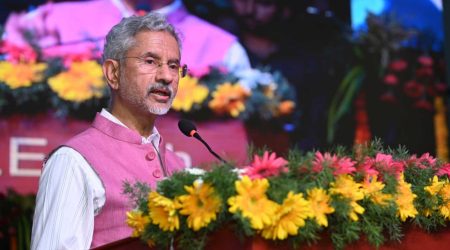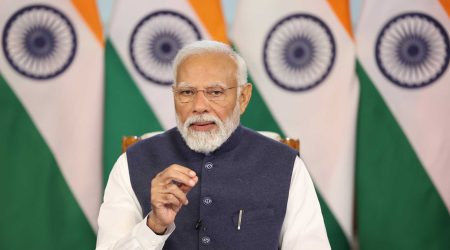By Vipul Tamhane
The Super Bowl of elections is here, and 2024 is not just an election year, it’s perhaps “The” election year. At least 64 countries, including the European Union, are set to hold national elections, with the results of which will have significant implications for the world.
Taiwan’s next president could shape Beijing’s approach to the self-governed island. Elections with uncertain outcomes, such as Ukraine’s upcoming 2024 presidential vote, would be worth watching.
Key political successions are also brewing, with the Rishi Sunak led ruling Conservative Party in the United Kingdom is likely to face opposition in the next general election. The US presidential race, culminating this November, has the potential to affect the world and its future course.
The international arena witnesses a complex interplay of power dynamics, where nations employ a diverse range of political disruptors to influence the trajectory of rival states. These disruptors, categorized as either soft power or hard power strategies, are selected based on the desired outcome and the geopolitical context.
Soft power tactics, such as diplomacy, cultural exchange, and economic aid, rely on persuasion and attraction to achieve political goals. Conversely, hard power tactics, encompassing economic sanctions, cyberattacks, and military actions, exert coercion and force to influence rival nations.
One particularly disruptive tactic involves influencing elections within a target nation. By disseminating propaganda and disinformation, nations aim to manipulate public opinion and sway voter sentiment. Additionally, covert financial support for preferred parties or candidates, coupled with intelligence gathering on electoral processes, undermines the legitimacy of the election and disrupts the democratic process.
While influencing elections can install a leadership amenable to the influencing nation’s interests, such tactics risk eroding international trust and fostering instability. The effectiveness of these disruptors hinges on a nuanced understanding of the target nation’s political landscape and a judicious selection of strategies to achieve the desired outcome within the constraints of international norms.
A long history exists of nations meddling in rival elections. The US-Iran coup (1953) and CIA intervention in Chile (1970s) exemplify this. More recently, Russia’s actions in Ukraine (2014) and alleged interference in the 2016 US election highlight the evolving tactics, from manipulating social media to supporting separatists. These instances demonstrate the potential for such actions to sway elections and advance national interests.
Geopolitical rivalries between the US and India include the US-Russia rivalry, which focuses on global influence and power, and the US-China rivalry, which focuses on economic, military, and technological competition. The US might influence elections in countries within Russia’s sphere of influence, like former Soviet states, to counter Russian dominance, while Russia might use similar tactics in US-allied countries. The China-India rivalry stems from competition for regional dominance and resources in Asia, with territorial disputes and border clashes adding to tension.
China might influence elections in countries bordering India, while India could counter by supporting candidates in countries with strained relations with China. Potential means of influencing elections include disinformation campaigns, cyberattacks, financial support, and social media manipulation. Understanding these geopolitical rivalries can help us stay informed about potential foreign interference in democratic processes.
Microsoft’s warning about China’s intent to disrupt elections in the US, South Korea, and India using AI-generated content is particularly concerning. This follows a trial run during the Taiwan presidential election, where China attempted to influence the outcome using similar tactics. Chinese state-backed cyber groups, including those from North Korea, are expected to target high-profile elections in 2024. The use of AI-generated content via social media platforms marks a dangerous trend in state-backed interference, highlighting the need for robust cybersecurity measures and vigilant monitoring of online activities during elections.
During the Taiwanese election, a Beijing-backed group named Storm 1376 utilized AI-generated memes and fake audio content to undermine specific candidates. This incident underscores the transformative impact of artificial intelligence (AI) on global geopolitics. AI is reshaping warfare, intelligence gathering, data analysis, and disinformation campaigns, influencing the dynamics of international relations.
The strained relationship between China and India, intensified by border disputes and geopolitical rivalries, raises concerns about potential interference in each other’s internal affairs. China may resort to cyberattacks, disinformation campaigns, or backing political factions to disrupt Indian elections, although such efforts would likely be met with strong resistance from Indian authorities. India must prioritize vigilance to safeguard its electoral processes from external interference, while diplomatic initiatives aimed at addressing underlying tensions could help mitigate the risk of disruptive actions.
China’s potential influence in India’s 2024 general elections poses a significant concern, as it could aim to advance its strategic interests by supporting a favorable party or candidate. This support may come in various forms, including financial assistance, propaganda campaigns, or cyber operations to bolster its preferred party’s chances.
China’s potential use of AI to manipulate India’s elections poses a significant threat, with tactics including spreading misinformation, fake news, and propaganda to discredit candidates and disrupt voting processes.
To counter this, India should invest in AI-powered tools to monitor and detect misinformation, bolster cybersecurity measures, and enhance digital literacy among the populace to resist manipulation attempts. China could also employ financial support for political parties, covert operations, economic pressure through trade restrictions, support for proxy groups, and media manipulation to influence Indian elections. India’s response should involve strengthening regulatory frameworks, increasing transparency in political financing, and promoting media literacy to counter such threats effectively.
To safeguard its electoral process in the 2024 general elections, India can implement several key strategies. Enhanced cybersecurity measures can protect against cyber threats, while monitoring social media can help detect and counter disinformation campaigns. Ensuring transparency in political financing can reduce the influence of illicit funds, and collaborating with international partners can provide valuable insights and support. Educating the public about critical thinking and media literacy can help citizens identify and resist manipulation. Deterring foreign interference, engaging with tech companies for tools to detect and mitigate disinformation, and providing training for election officials and law enforcement agencies are crucial steps to ensure the integrity of India’s electoral process.
To counter potential interference from China, India can implement innovative measures such as developing AI-powered monitoring tools and using blockchain technology to secure election data.
Strengthening cybersecurity measures and collaborating with international partners are also crucial steps. Public awareness campaigns can educate the public about the risks of foreign interference, while digital diplomacy can build alliances to counter China’s influence. Strengthening legal and regulatory frameworks and promoting media literacy programs can help citizens identify and resist manipulation attempts by foreign actors.
As India gears up for the 2024 general elections, it is imperative to uphold democratic principles and safeguard the electoral process from external interference. Robust cybersecurity measures, including monitoring social media and enhancing financial vigilance, are crucial to protect against cyber threats and illicit foreign funding.

Vipul Tamhane is a counter terrorism expert and a visiting faculty with Pune University (SPPU) at Dept. of Defense and Strategic Studies (DDSS). He is also founder and Editor-in-Chief at Diplomacy Direct, a public interest Think Tank based in India.
Disclaimer: The views expressed are not necessarily those of The South Asian Times












